#julie richardson
Text
Welcome to the very first fic in my werewolf au!
This is sort of the first part in this au establishing the premises, and who knows this might actually end up being a long fic, lol.
But if anyone has any ideas for branching off little side plots to this story, you just wanna drop by to give your thoughts or you have any questions feel free to drop by my inbox!
“Welcome to Jumpstart, how can we help you jumpstart your day?” Robin droned in her best customer service voice when she heard the little bell over the door jingle.
Looking up from her magazine, it felt like her brain was short-circuited when she found a pretty girl standing across the counter from her. Her pretty green eyes scanned the coffee shop like she was looking for someone.
It probably took Robin longer than it should have to realize that she was saying something.
”I'm uh...sorry can you repeat that?” Robin stumbled over her words, feeling a hot flush creep up her face.
“Oh!” The girl exclaimed her eyes landing on Robin almost like she'd just noticed that she was there, “I'm uh looking for someone...Steve Harrington?”
Robin felt like her heart dropped, shattering on the ground when the girl asked for her co-worker. “He's in the back...I can go grab him...”She mumbled dejectedly, pushing the door open, “Hey Dingus, there's someone here to see you!”
The girl stood there waiting patiently, anxiously winding one of her curls around her finger when Steve stumbled out of the back. Her eyes widened a little and she had to stifle a giggle in the back of her hand when she caught sight of him.
Robin didn't blame her, Steve looked ridiculous.
He had a thick wool beanie pulled so far down on his head that it nearly cover his eyes, despite it still being fairly warm out. A crisp white mask covered his mouth and nose.
All he was missing was a pair of shades to complete the look.
“Julie?” Steve exclaimed his head tilted slightly like a confused dog blinking at her, “I though you weren’t supposed to be in town til Friday…”
“It is Friday...” Julie gave Steve a dumbfounded look as he stared blankly at her before an embarrassed flush crawled up his face all the way to his ears.
”Is there somewhere we could talk in private?” She asked pointedly her eyes never leaving Steve, the man shrinking underneath his gaze.
”Break rooms free,” Robin intervened, “just don't spend too long making out because some of us actually have work to do...” Robin felt a little bad watching Julie's face turn beet red, trying to fumble out a response before glaring pointedly at Steve.
“You. Break room. NOW.” Julie hissed through gritted teeth. ”Julie!” Steve yelped as the smaller woman pushed him through the door.
~
”Are you insane!?” Julie hissed at him in hushed tones once they were safely behind the closed door, “Do you have any idea what day it is!!?”
”October first?” Steve answered with a sheepish little shrug, holding his hands up to protect himself when Julie grabbed a rag swatting him with it.
”Don't be a smart ass, Steven,” Julie ground out through gritted teeth, “it's a full moon, a blood moon! Christ, aren't you supposed to be the werewolf!!?
”Little hard to forget with the fangs, Jules!!” He told her, pulling back the mask so he could show off his pearly whites.
”Your eyes are yellow too, dumbass,” Julie snorted watching as Steve fumbled with his phone so he could look, “and I'm sure the beanie isn't just a bold new fashion choice...fuck I thought you called out of work?”
”There wasn't anyone to cover me...”Steve sighed, squinting at the phone screen examining his iris', “shit they really are yellow.”
”Yeah they are...do you have a pair of shades on you?” Julie ran her hand down her face exasperated.
”Couldn't find them this morning...figured it'd be fine...”Steve grumbled sliding his phone back into his pocket.
“What gives you're normally more careful than this...” She shoved him lightheartedly with a huff, “I think I might have a pair in my truck you can borrow...how much longer is your shift?”
“I get off before it gets dark if that’s what you’re asking,” Steve told her, leaning back against the wall, “no closing shifts for this guy.”
They nearly jumped out of their skin when someone started banging on the door, Steve fumbling to pull his mask back on his face hastily.
“Hey lovebirds,” Robin called out, “times up, come out.” Julie looked at Steve feigning a gag at the mention of lovebirds.
“Get the sunglasses first,” She tossed Steve her keys, “don’t let anyone see your eyes got it.” Watching Steve fumble to catch the keys before nodding to her. They left the break room so quickly that Julie almost ran directly into a familiar dark head of hair, and stumbled backward a hand catching her before she fell on her ass.
“Whoa there,” Eddie said, a cheeky little grin on his face that showed off his dimples nicely, “was he that bad?”
”Eddie Munson, you bastard,” Julie grinned, throwing her arms around the older man, burying her face in his chest taking in the scent of leather and cheap cologne, “I haven't seen you since...middle school, not rocking the buzz cut anymore?”
”Nah, got me a full lion's mane now!” Eddie pulled away slightly so he could shake his head showing on his long curly hair, “Birdie told me about you and Harrington...you know you can do better right?”
”Not happening, Eds,” Julie wrinkled her nose, sticking her tongue out, “Stevie and I are strictly friends.” The little bell over the door dinged announcing Steve's return, and Robin snorted.
”You know I didn't get it before but I really think the pink heart sunglasses tie the look together.” She poked fun at him, while Eddie doubled over cackling. Julie shot him an apologetic, feeling a little bad but they were the only ones she had on hand.
”Starting a new trend or just trying to win a fashion contest, Harrington?” Eddie jabbed at Steve joining in the ribbing, and Steve's face flooded with hot shame. Turning a lovely shade of pink that matched the glasses.
”Laugh it up, Munson, at least I have fashion.” Steve jabbed back, rolling his eyes behind the rose-colored lenses.
”Oh yeah because your collection of polo shirts just screams fashion, sorry I think I'll stick with my battle vest,” Eddie sniffed, thumbing at his nose, “you look like a gap model.”
”You think I could be a model?” Steve flashed a charming smile, smoothly bringing his hand to his chest feigning as if he'd received a genuine compliment from the older man.
”My mistake, Gap is too sophisticated, I heard baby gap is hiring.” Eddie looked up at Steve with a devilish grin on his face. Steve felt like his face was on fire as he opened his mouth to retaliate.
”Enough, with the pissing contest, I'm drowning over here, ”Robin call out from where she was making drinks, “you're supposed to be on the register, Steve.”
Steve's mouth snapped shut. It didn't matter anyway since Eddie's attention wasn't on their conversation anymore. He was using his wrist to scrub at his nose now turning it a lovely irritated shade of pink.
”You good, Eds?” Julie asked, but Eddie only held up a finger pausing for a moment. His mouth hung open slightly, eyelids at half mast as his chest swelled slightly with hitching breaths.
”Hhih'! Ih'GXSHht!”
He sneezed off to the side, pinching his nose between his fingers so that he could rub at it with a little squish. “Gh...sorry about that...probably allergic to Harrington's shitty cologne.” Eddie nodded in Steve's direction.
”I don't wear cologne, asshole.” Steve grumbled, passing off an order to Robin before going back to the counter to take another order.
“Can't be much else...sndf,” Eddie knuckled as his flushed nostrils, “I'm only all-heh allergic to pollen, your shitty colo-hhh-cologne...and dogs.”
”Oh, I forgot you were allergic to dogs...”Julie started covering her mouth with her hand, as Steve's head snapped towards her nearly dropping the drink in his hand.
”Yeah, wha-hah...what does that have to do with anything?” Eddie snuffled thickly into the back of his wrist. Swiping at his nose.
”My old roommate in Cali had a dog, and I haven't gotten a chance to wash the fur off my clothes!” Julie answered a little too quickly, “It's probably what's setting you off...is what I'm saying?”
Eddie gave her an odd look which quickly turned hazy with the need to sneeze.
“Hih’IH’GSShxt! ‘GXXSHht! ‘XSHhtiew! HIh’GSHIEW!!!”
He pulled his bandanna out of his pocket pressing it to his leaky nose. “gh…shit sorry I gotta get out of here, later.” He gave a little wave while taking his coffee before dipping out of the coffee shop.
#werewolf steve au#s/teve h/arrington#e/ddie m/unson#r/obin b/uckley#Oc#julie richardson#snz#allergies#I need to come up with a better name for this au lol
30 notes
·
View notes
Text
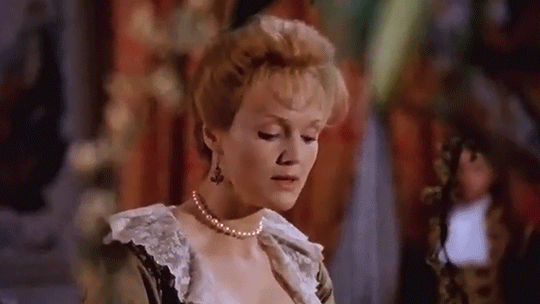
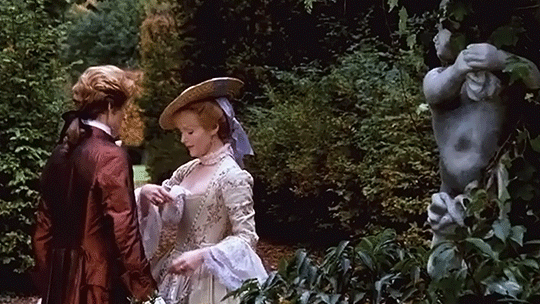




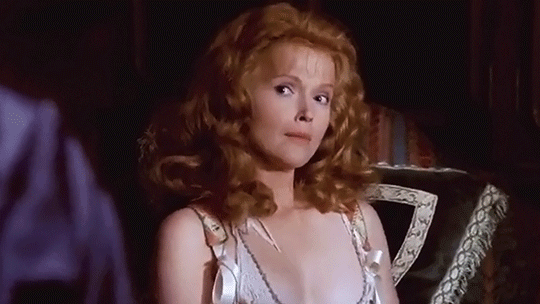



Miranda Richardson as Julie
The Night and the Moment - 1994
#Miranda Richardson#Julie#The Night and the Moment#my gifs#movie edits#movies : period#movies : British#movies : Romance#Willem Dafoe#I'm in a Miranda deep dive so brace yourselves friends#I've loved Miranda longer than time has had meaning in my life
22 notes
·
View notes
Text

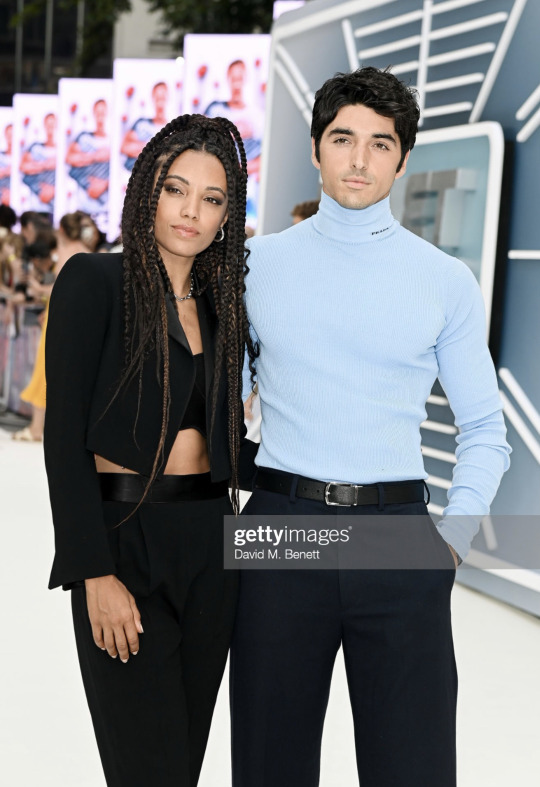


Bullet Train UK Screening
10 notes
·
View notes
Text
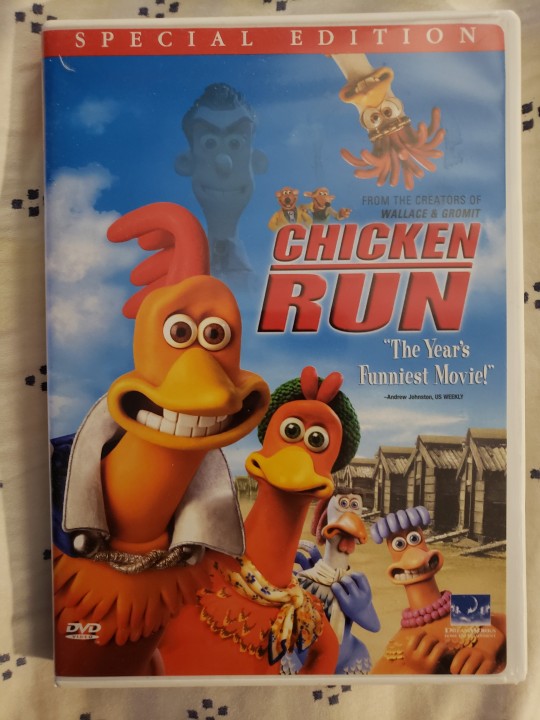
Now showing on DuranDuranTulsa's Comedy Cinema 🎥...Chicken 🐔 Run (2000) on classic DVD 📀! #movie #movies #comedy #animation #ChickenRun #MelGibson #juliesawalha #imeldastaunton #MirandaRichardson #2000s #dvd #durandurantulsa #durandurantulsascomedycinema
#movies#movie#comedy#animation#julie sawahla#mel gibson#miranda richardson#imelda staunton#2000s#dvd#duran duran tulsa#duran duran tulsa's comedy cinema
3 notes
·
View notes
Text

US Vogue July 1986
Ashley Richardson wears a straight black wool flannel skirt, a jacket and a red wool muffler. By Gianfranco Ferré. Earrings, Detail NYC, gloves, Donna Karan New York, tights, Christian Dior, ballet flats, Bally Switzerland. The man: Turtleneck, Zoran, Pants, Barry Bricken, socks, E.G.Smith, loafers, Maraolo.
Ashley Richardson porte une jupe droite en flanelle de laine noire, une veste et un cache-nez en laine rouge. Par Gianfranco Ferre. Boucles d'oreilles, Detail NYC, gants, Donna Karan New York, collants, Christian Dior, Ballerines, Bally Switzerland. L'homme : Col roulé, Zoran, Pantalon, Barry Bricken, chaussettes, E.G.Smith, mocassins, Maraolo.
Coiffure : Madeleine Cofano & Gad Cohen Maquillage : Lydia Snyder.
Photo Bill King
vogue archive
#us vogue#july 1986#fashion 80s#1986#fall signals#automne#gianfranco ferré#italian designer#italian style#detail#donna karan#christian dior#bally#zoran#barry bricken#e.g.smith#maraolo#ashley richardson#bill king#madeleine cofano#gad cohen#lydia snyder
12 notes
·
View notes
Text
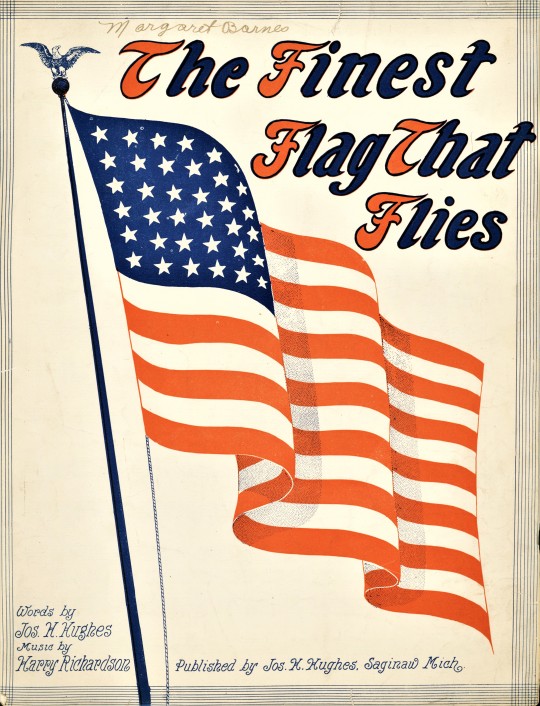


4th of July!
On this Independence Day, we bring you a few patriotic sheet music covers from our collection:
The Finest Flag that Flies, with words by Joseph H. Hughes and music by Harry Richardson, self-published by Hughes in Saginaw, Mich. in 1914.
Our America March and One Step (Ah, America We Love You So), with words by Laura L. Smith and music by John W. Keck, published in our fair city of Milwaukee by William A Kaun Music Co. in 1918
America To Day, with words by Herbert Moore and music by W. R. Williams, published in Chicago by Will Rossiter in 1917.
And as the last cover reminds us, "Don't Worry, Uncle Sam's All Right!" Whether that means the country is going to be OK, or America's always in the right, we don't know, but we prefer the former. Anyway, Happy Independence Day!
View posts from Independence Days past.
#4th of July#Fourth of July#July 4th#Independence Day#sheet music#patriotic music#patriotic songs#The Finest Flag that Flies#Joseph H. Hughes#Harry Richardson#Our America March and One Step#Laura L. Smith#John W. Keck#William A Kaun Music Co.#America To Day#Herbert Moore#W. R. Williams#Will Rossiter
12 notes
·
View notes
Photo
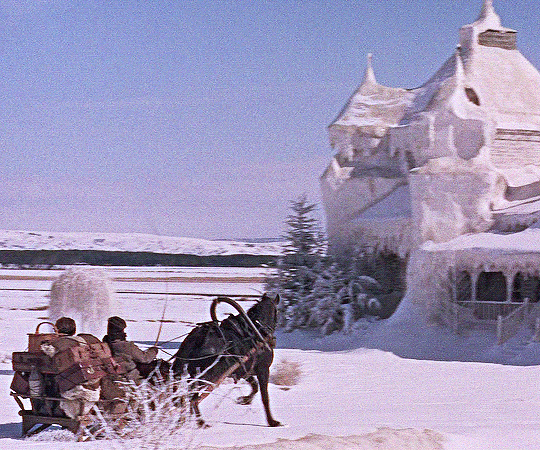
DOCTOR ZHIVAGO 1965
Lara, I am determined to save you from a dreadful error. There are two kinds of men, and only two, and that young man is one kind. He is high-minded. He is pure. He is the kind of man that the world pretends to look up to and in fact despises. He is the kind of man who breeds unhappiness; particularly in women. Now, do you understand?
#doctor zhivago#1965#omar sharif#julie christie#geraldine chaplin#rod steiger#alec guinness#tom courtenay#siobhan mckenna#ralph richardson#rita tushingham#jeffrey rockland#klaus kinski#bernard kay
7 notes
·
View notes
Text
LETTERS FROM AN AMERICAN
July 2, 2023
HEATHER COX RICHARDSON
JUL 3, 2023
On July 2, 1776, the Second Continental Congress passed a “Resolution for Independence” declaring “That these United Colonies are, and of right ought to be, free and independent States, that they are absolved from all allegiance to the British Crown, and that all political connection between them and the State of Great Britain is, and ought to be, totally dissolved.”
Also known as the “Lee Resolution,” after Virginia delegate Richard Henry Lee, who had proposed it, the resolution was the final break between the king and the thirteen colonies on the North American continent that would later become the United States of America.
The path to independence had been neither obvious nor easy.
In 1763, at the end of what was known in the colonies as the French and Indian War, there was little indication that the colonies were about to start their own nation. The war had brought an economic boom to the colonies, and with the French giving up control of land to the west, Euro-American colonists were giddy at the prospect of moving across the Appalachian Mountains. Impressed that the king had been willing to expend such effort to protect the colonies, they were proud of their identity as members of the British empire.
That enthusiasm soon waned.
To guard against another expensive war between colonists and Indigenous Americans, the king’s ministers and Parliament prohibited colonists from crossing the Appalachians. Then, to replenish the treasury after the last war, they passed a number of revenue laws. In 1765 they enacted the Stamp Act, which placed a tax on printed material in the colonies, everything from legal documents and newspapers to playing cards.
The Stamp Act shocked colonists, who saw in it a central political struggle that had been going on in England for more than a century: could the king be checked by the people? Colonists were not directly represented in Parliament and believed they were losing their fundamental liberty as Englishmen to have a say in their government. They responded to the Stamp Act with widespread protests.
In 1766, Parliament repealed the Stamp Act but linked that repeal to the Declaratory Act, which claimed for Parliament “full power and authority to make laws and statutes…to bind the colonies and people of America…in all cases whatsoever.” This act echoed the 1719 Irish Declaratory Act, which asserted that Ireland was subordinate to the British king and Parliament. It also imposed new taxes.
As soon as news of the Declaratory Act and the new taxes reached Boston in 1767, the Massachusetts legislature circulated a letter to the other colonies standing firm on the right to equality in the British empire. Local groups boycotted taxed goods and broke into warehouses whose owners they thought were breaking the boycott. In 1768, British officials sent troops to Boston to restore order.
Events began to move faster and faster. In March 1770, British soldiers in Boston shot into a crowd of men and boys harassing them, killing five and wounding six others. Tensions calmed when Parliament in 1772 removed all but one of the new taxes—the tax on tea—but then, in May 1773, it tried to bail out the failing East India Company by giving it a monopoly on tea sales in the colonies. The result would be cheaper tea in the colonies, convincing people to buy it and thus establishing Parliament’s right to impose the tax.
Ships carrying the East India tea sailed for the colonies in fall 1773, but mass protests convinced the ships headed to every city but Boston to return to England. In Boston the royal governor was determined to land the cargo. On December 16, 1773, colonists dressed as Indigenous Americans boarded the Dartmouth, tied to a wharf in Boston Harbor, and tossed the tea overboard. Parliament promptly closed the port of Boston, strangling its economy.
In fall 1774, worried colonial delegates met as the First Continental Congress in Carpenters’ Hall in Philadelphia to figure out how to stand together against tyranny. In Massachusetts a provincial congress stockpiled weapons and supplies in Concord and called for towns to create companies of men who could be ready to fight on a minute’s notice.
British officials were determined to end the rebellion once and for all. They ordered General Thomas Gage to arrest Boston leaders Samuel Adams and John Hancock, who were rumored to be in Lexington, and to seize the supplies in Concord. On the night of April 18, 1775, the soldiers set out. The next morning, on the Lexington town green, the British regulars found several dozen minutemen waiting for them. The locals began to disperse when ordered to, but then a shot cracked through the darkness. The regulars opened fire. Eight locals were killed, another dozen wounded.
The regulars marched on to Concord, where they found that most of the supplies had been removed. Then, when they turned to march back to Boston, they found their retreat cut off by minutemen firing from behind boulders, trees, and farmhouses. Seventy-three regular soldiers were killed, another 174 were wounded, and 26 were missing. There were 96 colonial casualties: 49 killed, 41 wounded, and 5 missing.
Before disbanding the year before, the First Continental Congress had agreed to meet again if circumstances seemed to require it. After the events at Lexington and Concord, they regrouped in Philadelphia in late spring 1775, down the street from Carpenters’ Hall in the Pennsylvania State House, a building that we now know as Independence Hall.
The Second Continental Congress agreed to pull the military units around Boston into a Continental Army and put George Washington of Virginia in charge of it. But delegates also wrote directly to the king, emphasizing that they were “your Majesty’s faithful subjects.” They blamed the trouble between him and the colonies on “many of your Majesty’s Ministers,” who had “dealt out” “delusive presences, fruitless terrors, and unavailing severities” and forced the colonists to arm themselves in self-defense. They begged the king to use his power to restore harmony with the colonies. By the time the Olive Branch Petition made it to England in fall 1775, the king had already declared the colonies to be in rebellion.
In January 1776, a 47-page pamphlet, published in Philadelphia by newly-arrived immigrant Thomas Paine, provided the spark that inspired his new countrymen to make the leap from blaming the king’s ministers for their troubles to blaming the king himself. “In the following pages I offer nothing more than simple facts, plain arguments, and common sense,” Paine wrote.
Paine rejected the idea that any man could be born to rule others, and he ridiculed the idea that an island should try to govern a continent. “Where…is the King of America?” Paine asked in Common Sense. “I’ll tell you Friend…so far as we approve of monarchy…in America THE LAW IS KING. For as in absolute governments the King is law, so in free countries the law ought to be King; and there ought to be no other.
“A government of our own is our natural right: And when a man seriously reflects on the precariousness of human affairs, he will become convinced, that it is infinitely wiser and safer, to form a constitution of our own in a cool deliberate manner, while we have it in our power, than to trust such an interesting event to time and chance. If we omit it now, some [dictator] may hereafter arise, who laying hold of popular disquietudes, may collect together the desperate and the discontented, and by assuming to themselves the powers of government, may sweep away the liberties of the continent like a deluge.”
“We have it in our power,” Paine wrote, “to begin the world over again.”
As Common Sense swept the colonies, people echoed Paine’s call for American independence. By April 1776, states were writing their own declarations of independence, and a Virginia convention asked the Second Continental Congress to consider declaring “the United Colonies free and independent States, absolved from all allegiance to, or dependence upon, the Crown or Parliament of Great Britain.” On June 7, Lee put the resolution forward. Four days later, the Congress appointed a committee to draft such a declaration.
Congress left time for reluctant delegates to come around to the resolution, so it was not until July 2 that the measure passed. “The Second Day of July 1776, will be the most memorable Epocha, in the History of America,” Massachusetts delegate John Adams wrote to his wife, Abigail, on July 3. While we celebrate the signing of the final form of the declaration two days later, the adoption of the Lee Resolution marked the delegates’ ultimate conviction that a nation should rest not on the arbitrary rule of a single man and his hand-picked advisors, but on the rule of law.
[Image: Adoption of the Resolution Calling for Independence from England; 7/2/1776; Reports on Administrative Affairs of the Congress; Papers of the Continental Congress, 1774 - 1789; Records of the Continental and Confederation Congresses and the Constitutional Convention, Record Group 360; National Archives Building, Washington, DC.]
LETTERS FROM AN AMERICAN
HEATHER COX RICHARDSON
#letters from an american#Heather Cox Richardson#history#independence#congress#4th of July#Independence Day
3 notes
·
View notes
Photo

Here’s a Post of My OC Karen O Koopa with her Magic Scepter before I Draw her OC Axel For Tomorrow for The Art Trade and i hope you gonna enjoy the post of her
#Karen O Koopa#Karen#Fanart#Fan art#OC#My OC#Drawings#Drawing#Art#Artwork#Female#Female OC#KarenOKoopa#July#Summer#2022#Magic Scepter#MC Richardson#MCRichardson#Art Trade#Art Trades#Tumblr#Koopas#Koopa OC#Female Koopas#Female Koopa#Koopalings#Mario#Mario OC#Super Mario
5 notes
·
View notes
Text

0 notes
Text


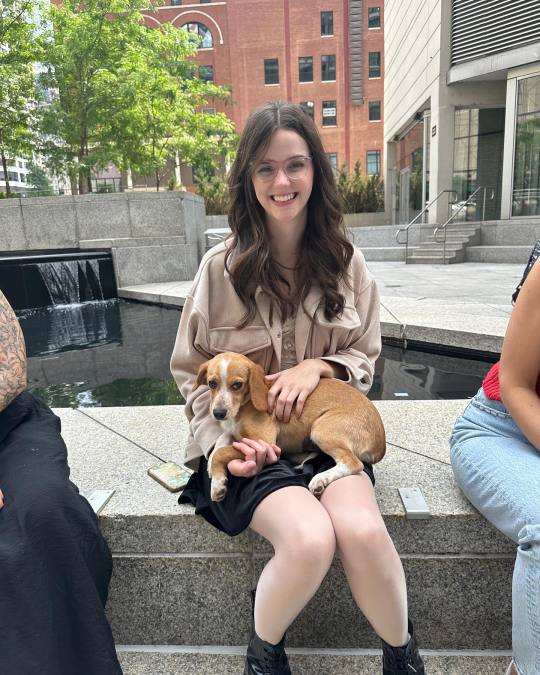

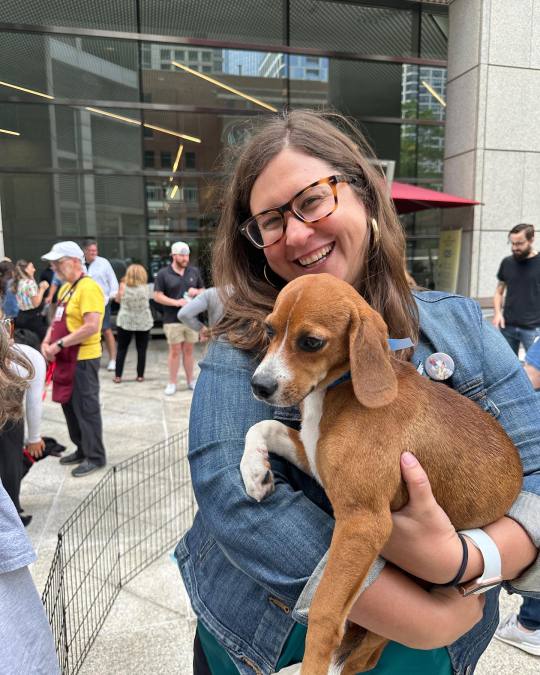
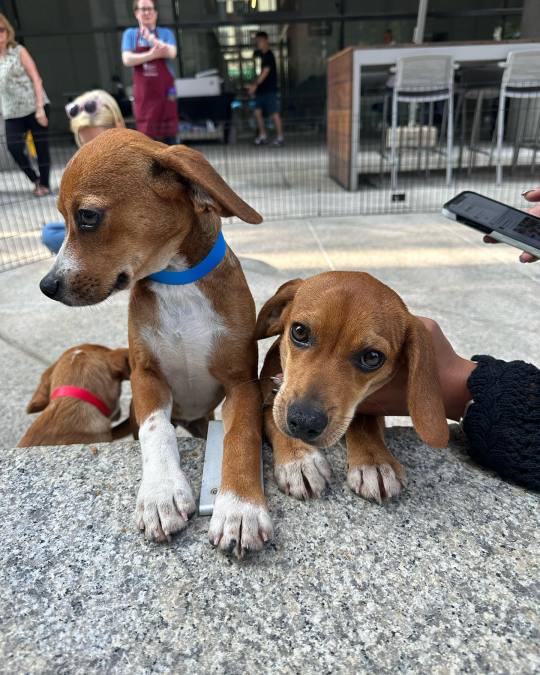
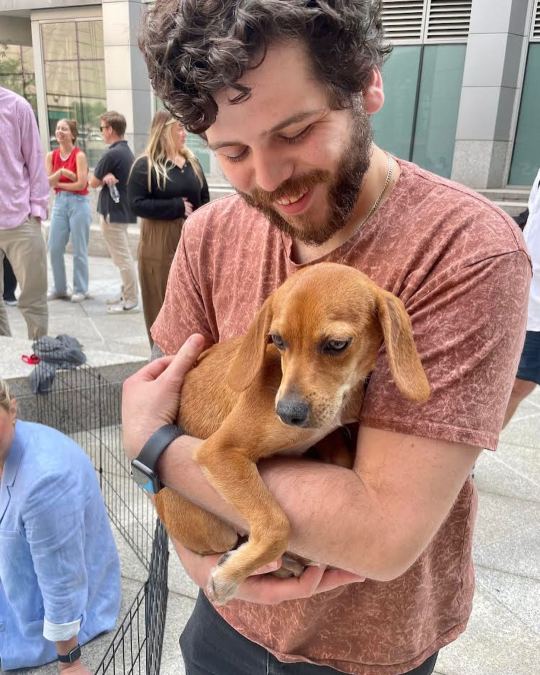
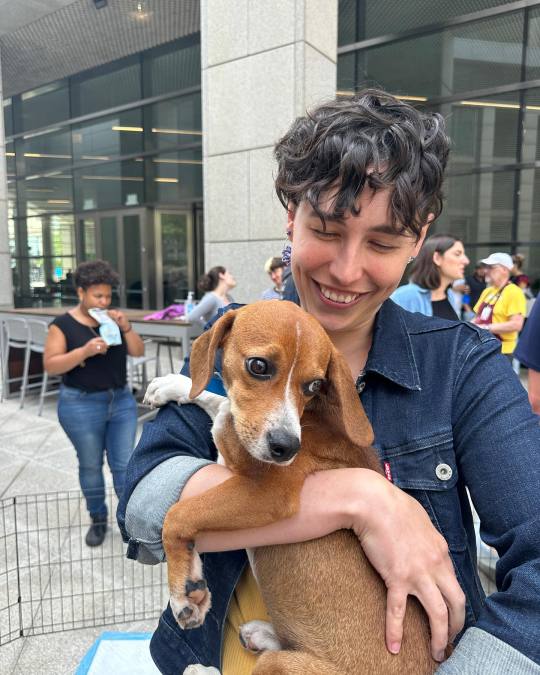


Five One Five’s Pups and Pops event
Read on
#Julie Klos Gosztola#kate smith#Alison Clare Bloom Caroll#Cliff Fitch#heather richardson#Jackie Cohen#Leah Fishwick#lilly hanson#cuttersstudios#Instagram
0 notes
Text
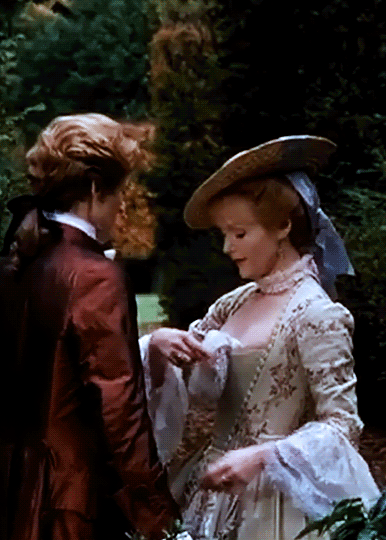
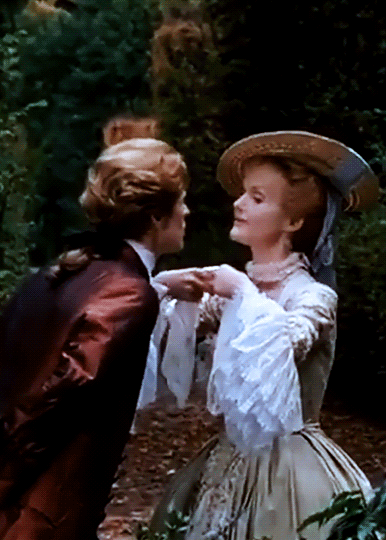
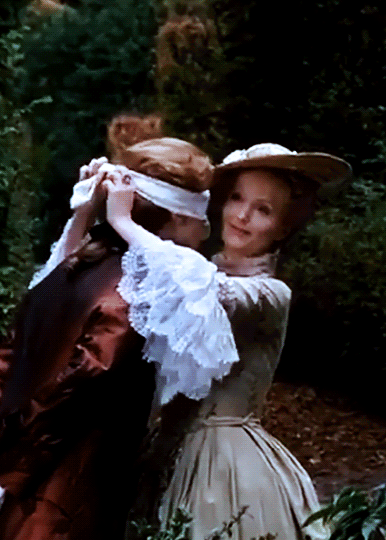
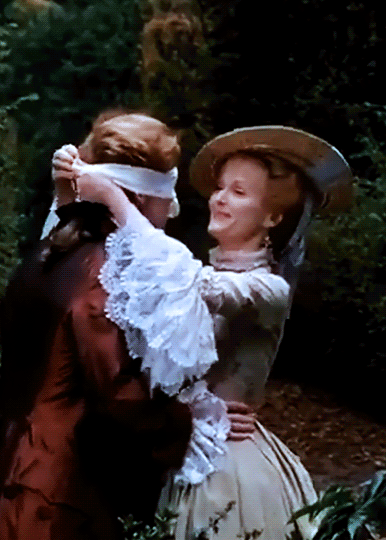
Miranda Richardson as Julie
The Night and the Moment - 1994
#The Night and the Moment#Miranda Richardson#Julie#1994#willem dafoe#my gifs#movie edits#movies : Romance#movies : Period#mredits#I've loved Miranda longer than time has had meaning in my life
11 notes
·
View notes
Photo

‘Josh Hawley running away to a variety of soundtracks’ “fades into ignominy.”
“Outtakes of the January 7 video recording tonight punctured Trump’s image as a strong leader: he repeatedly mangles simple language and takes out the word “yesterday” because it is a “hard word for me.” He repeatedly hits the podium in frustration. CNN’s chief White House correspondent Kaitlan Collins tweeted that multiple sources said it took Trump about an hour to record the three-minute video. His obstinacy made him look isolated and unreasonable; the outtakes made him seem pathetic and childish.
For all that, Trump fared better than Senator Josh Hawley (R-MO), the first senator to say he would empower the House Trump loyalists by contesting some of the state votes, who famously raised a fist in solidarity with the protestors on the morning of January 6. The committee showed the image of Hawley raising his fist…and then showed footage of him running at top speed through the Capitol when the rioters broke in. Across the internet, users have been poking fun at Hawley, who has recently been on a crusade to launch what he calls an imperative “revival of strong and healthy manhood in America” and “traditional masculine virtues.” They have been posting pictures of the video to the theme from the running movie Chariots of Fire, for example, and pictures of running chickens. As journalist Adam Serwer tweeted, “Hawley riling up the mob and then fleeing in terror is an incredible political metaphor.”
READ MORE https://heathercoxrichardson.substack.com/p/july-21-202
603 Comments “And in September 2020 I read Barton Gellman's on-line piece in The Atlantic titled The Election That Could Break America. It was slated for November issue but they knew they needed to get it out sooner. Problem I see is too much good reporting is behind paywalls.I've read them all.” https://www.theatlantic.com/author/barton-gellman/
“This is a vid from Beau of the Fifth Column. His is a rather prolific voice on social media. He put out something yesterday about the 3 factions that exist currently in the Republican Party. Give a listen. In a roundabout way, I think it speaks to how many people will not be voting for him and how that number is growing. I believe that he is quite accurate in his assessment.“ https://youtu.be/0YmvgBYNqI8
“The comedian Noel Calsler worked for years on "Celebrity Apprentice" and knows horrifying details about Trump. He shares them daily on Twitter.”
https://twitter.com/caslernoel
“He chose not to act.” https://roberthubbell.substack.com/p/he-chose-not-to-act
“Commentators are increasingly speculating that the Secret Service agents were likely using encrypted messaging apps such as Signal. Not SMS texting like most of us do.
Such messages are not only encrypted, they can also be set to disappear. But is this legal for federal employees? Highly doubt it.
The experience of former FBI agent Peter Strzok, whose texts about Trump were made public, leading to his firing, was a striking lesson.”
https://mashable.com/article/what-is-signal-app
“Let me share this Ogden Nash quote with you. I see the Committee and all the work as closing the door.”
“The door of a bigoted mind opens outwards so that the only result of the pressure of facts upon it is to close it more snugly.” - Ogden Nash
“Lots of doors for us to slam the f*ck shut”
<>If you have not read his books and articles, or watched his interviews, now is a good time to catch up with Malcom Nance. His viewpoint is inline with last nights hearing. Political violence of Jan 6th is now a shared worldview of about 30% of Americans. And that tragic fact is not going away once the hearings are over. We need to understand why that is the case.<>
“The January 6 hearings have brought to light explosive evidence of Donald Trump's efforts to subvert democracy, as well as the role of far-right extremist groups linked to the former president. In a new book, counterterrorism expert Malcolm Nance investigates this growing threat. Nance is executive director of the Terror Asymmetrics Project, and he joins Michel Martin to talk about far-right ideologies, as well as his own experience fighting in Ukraine.”
https://youtu.be/fd04p2Xcg7M 1,572 Comments
0 notes
Text

R. C. Gorman (deceased)
Gender: Male
Sexuality: Gay
DOB: 26 July 1931
RIP: 3 November 2005
Ethnicity: Native American (Navajo)
Occupation: Artist, sculptor
Note 1: Opened the Navajo Gallery in Taos in 1968. It was the first Native American-owned art gallery. In 1973, he was the only living artist whose work was shown in the "Masterworks from the Museum of the American Indian" exhibition held at Metropolitan Museum in New York City. Two of his pieces were selected for the cover of the exhibit's catalog.
Note 2: Upon his death, New Mexico's governor Bill Richardson ordered flags flown at half-staff in his honor.
Note 3: Referred to as "the Picasso of American Indian artists" by The New York Times.
#R. C. Gorman#R C Gorman#Rudolph Carl Gorman#native american history#lgbt history#lgbt#male#gay#1931#rip#historical#poc#native#native american#artist#sculptor#first#popular#popular post#200
287 notes
·
View notes
Note
Hi Neil! Hope you’re doing well!! Sorry this probably isn’t the time (we didn’t see anything, not until July 28th, promise!!) and it might be obvious to everyone else but I rewatched the film Benjamin Button recently and it gave me an idea!
I just want to ask, have Maggie Service and Nina Sosanya been cast again as different characters just because of how iconic and lovable they are? Or is it a butterfly effect, if there was no antichrist to form the Satanic Order around (Adam’s human now after all), are Nina and Maggie (the characters) who Sister Mary Loquacious and Sister Theresa Garrulous actually became on this alternate timeline?
Hope that makes sense, so so excited for S2 🥳
We're on the same timeline. (Somewhere Mary Hodges is out running management conferences and Sister Theresa Garrulous is still dead.) I cast them because I wanted them in the show again, and I couldn't think of anyone I wanted in those roles except for them. There's a Good Omens family and Maggie and Nina are part of it. (Which is also why Miranda Richardson and Reese Shearsmith returned in new roles.)
1K notes
·
View notes
Link
LETTERS FROM AN AMERICAN
July 3, 2022
Heather Cox Richardson
And on July 4, 1776, the Second Continental Congress adopted the Declaration of Independence, declaring: “We hold these truths to be self-evident, that all men are created equal, that they are endowed by their Creator with certain unalienable rights, that among these are Life, Liberty and the Pursuit of Happiness.”
For all the fact that the congressmen got around the sticky little problem of Black and Indigenous slavery by defining “men” as “white men,” and for all that it never crossed their minds that women might also have rights, the Declaration of Independence was an astonishingly radical document. In a world that had been dominated by a small class of rich men for so long that most people simply accepted that they should be forever tied to their status at birth, a group of upstart legislators on the edges of a continent declared that no man was born better than any other.
America was founded on the radical idea that all men are created equal.
What the founders declared self-evident was not so clear eighty-seven years later, when southern white men went to war to reshape America into a nation in which African Americans, Indigenous Americans, Chinese, and Irish were locked into a lower status than whites. In that era, equality had become a “proposition,” rather than “self-evident.”
“Four score and seven years ago,” Abraham Lincoln reminded Americans, “our fathers brought forth on this continent, a new nation, conceived in Liberty, and dedicated to the proposition that all men are created equal.” In 1863, Lincoln explained, the Civil War was “testing whether that nation, or any nation so conceived and so dedicated, can long endure.”
It did, of course. The Confederate rebellion failed. The United States endured, and Americans began to expand the idea that all men are created equal to include Black men, men of color, and eventually to include women.
But just as in the 1850s, we are now, once again, facing a rebellion against our founding principle, as a few people seek to reshape America into a nation in which certain people are better than others.
The men who signed the Declaration of Independence on July 4, 1776 pledged their “Lives, [their] Fortunes and [their] sacred Honor” to defend the idea of human equality. Ever since then, Americans have sacrificed their own fortunes, honor, and even their lives, for that principle. Lincoln reminded Civil War Americans of those sacrifices when he urged the people of his era to “take increased devotion to that cause for which they gave the last full measure of devotion—that we here highly resolve that these dead shall not have died in vain—that this nation, under God, shall have a new birth of freedom—and that government of the people, by the people, for the people, shall not perish from the earth.”
Words to live by in 2022.
—
Note:
I have shared some version of this every year for the last few years. I wrote this quickly— actually running out the door— a few years ago, and no matter how long I sit at the laptop and fiddle, as I did this evening, I still think the original stands. It is a dark Independence Day in many ways this year, but I hope everyone is able to find at least a little respite, and to recall the whole point of what we’re up to in this country.
H.
LETTERS FROM AN AMERICAN
HEATHER COX RICHARDSON
[from comments]
FOUR ESSENTIAL FREEDOMS
Franklin Delano Roosevelt
In the future days, which we seek to make secure, we look forward to a world founded upon four essential freedoms. The first is freedom of speech and expression — everywhere in the world.
The second is freedom of every person to worship God in his own way — everywhere in the world.
The third is freedom from want — which, translated into world terms, means economic understandings which will secure to every nation a healthy peacetime life for its inhabitants — everywhere in the world.
The fourth is a freedom from fear — which, translated into world terms, means a world-wide reduction of armaments to such a point and in such a thorough fashion that no nation will be in a position to commit an act of physical aggression against any neighbor — anywhere in the world. That is no vision of a distant millennium.
It is a definite basis for a kind of world attainable in our own time and generation. That kind of world is the very antithesis of the so-called new order of tyranny which the dictators seek to create with the crash of a bomb. To that new order we oppose the greater conception — the moral order. A good society is able to face schemes of world domination and foreign revolutions alike without fear.
Since the beginning of our American history, we have been engaged in change — in a perpetual peaceful revolution — a revolution which goes on steadily, quietly adjusting itself to changing conditions — without the concentration camp or the quick-lime in the ditch. The world order which we seek is the cooperation of free countries, working together in a friendly, civilized society.
The nation has placed its destiny in the hands and heads and hearts of its millions of free men and women; and its faith in freedom under the guidance of God.
Freedom means the supremacy of human rights everywhere. Our support goes to those who struggle to gain those rights or keep them. Our strength is in our unity of purpose. To that high concept there can be no end save victory.
Message to Congress, 6 January 1941
4 notes
·
View notes